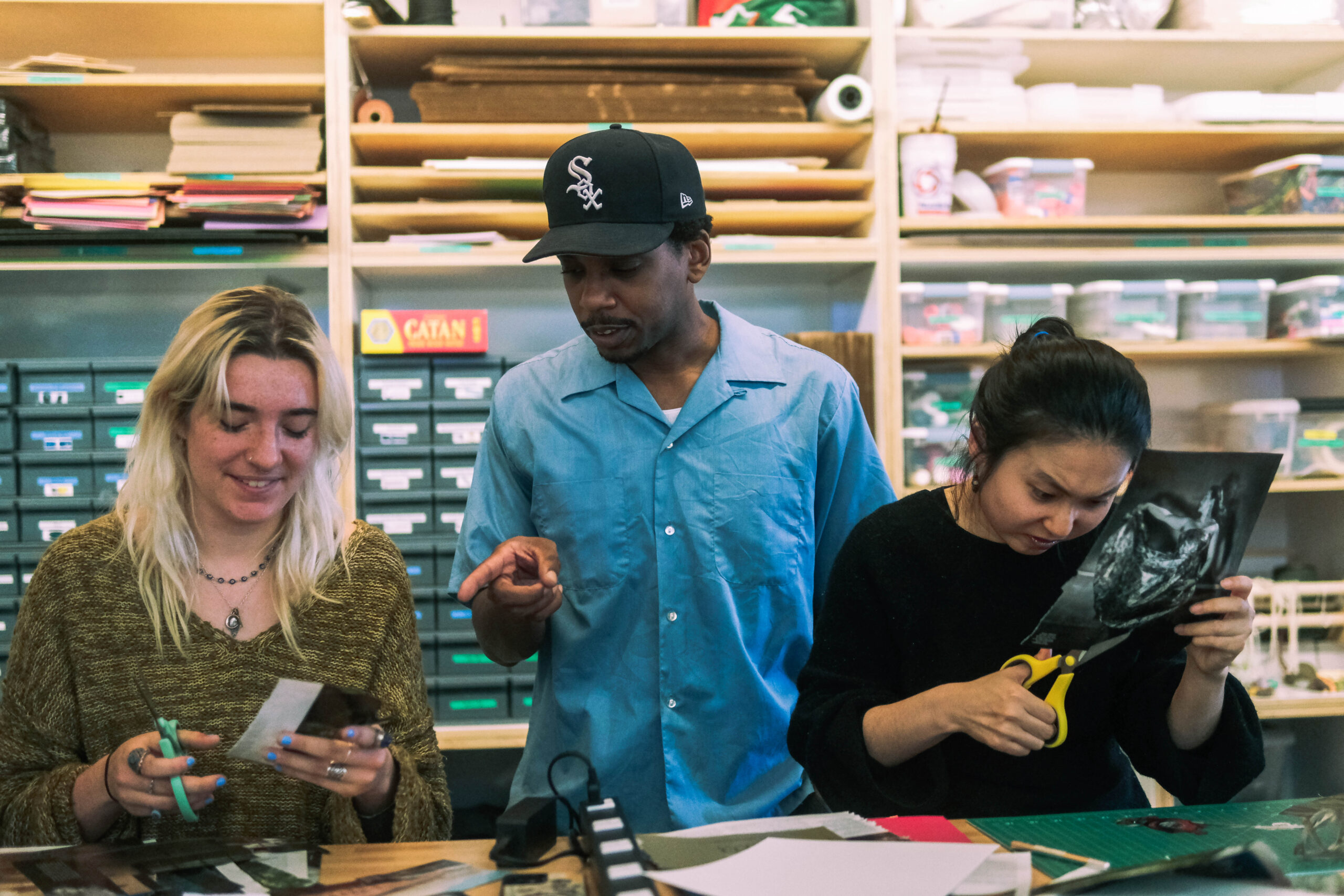Multimedia artist Yannick Lowery, a native of New York City, now based in Philadelphia, came to Haverford to lead a collage workshop to encourage students to visualize a collective future.
On Wednesday October 9, Lowery provided students and staff a break from the stress of their studies and workload to offer a space to think, as a group, about what they envision for the world and themselves. He spoke about the hustle and bustle of life, which rarely allows time for reflection and truly dedicated leisure, hypothesizing that perhaps it is only in our dreams that we can realize what we desire. Much of Yannick’s art focuses on this exact premise; they are dream collages where he retroactively builds upon what occurred in his sleep, focusing on culture, history, community, and the self.
Yannick explained his thought processes with a succinct presentation that covered his history and inspirations as an artist. He quoted Toni Morrison, stating “to lessen suffering, to know the truth and tell, to raise the bar of humane expectation.” This is to say that taking ourselves out of the present, even if only in our dreams, brings optimism through the mere idea that there are different realities possible.

Students were arranged around a long table in Haverford’s VCAM Maker’s Space, with collage materials in the center, and greatly appreciated food and refreshments on the side. There were a variety of fashion and architecture magazines, and of course, glue and razors to slice them up and put them together. The event was neither formal nor silent with pleasant background music, conversation, and Yannick circling the table inquiring and giving advice on participant’s projects. The collective aspect of the workshop was crucial because it highlighted that we can not have futures alone, and it is helpful to have guidance on how to translate your dreams into a material project since it was open to people of all skill and experience levels. As they created, participants discussed their relationships to their dreams whether they remembered them in the first place or if they were weird, scary, a reflection of their desires, etc. Regardless of the technical outcome, the intention set by the workshop proved to be a powerful one. Perhaps even stopping to think about one’s future allows one to be more present than when constantly on the move, checking things off a to-do list, and working towards a future without intentionally molding it to goals.
